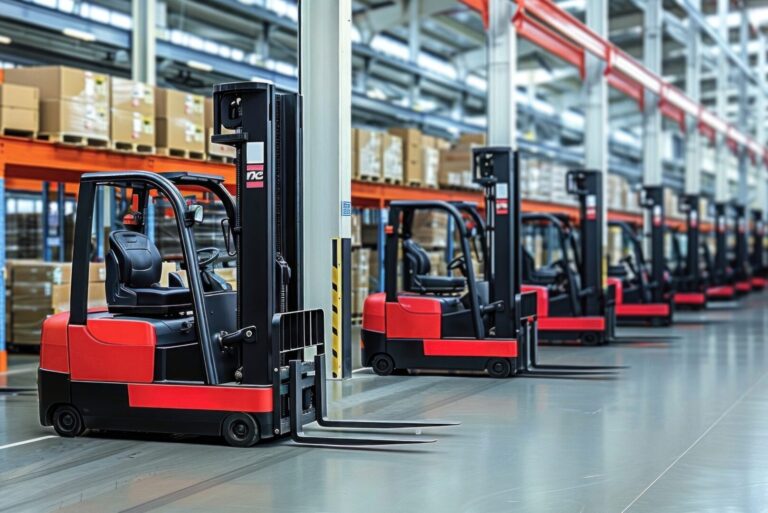The Canada iZEV Program: Financial Incentives and Grant Opportunities for EV Fleet Owners
May 31, 2024
The Government of Canada mandates that 100% of vehicles sold in Canada will be zero-emission vehicles (ZEV) by 2040. To mitigate the financial burden of switching to electric, Canada offers a variety of financial incentives and funding opportunities to fleet owners throughout the country.
This article provides an overview of available incentives and financial opportunities offered to Canadian electric vehicle (EV) fleet owners to assist in the transition to electric vehicles.
Finding the Right EV Incentives for You
Canada recently rolled out legislation that mandates the widespread adoption of electric vehicles. The 2030 Emissions Reduction Plan requires vehicle manufacturers and dealerships to sell an increasing percentage of ZEVs, with 100% of light-duty vehicles being electric by 2035 and 100% of medium- and heavy-duty vehicles being electric by 2040.
However, the transition to electric can pose a heavy financial burden on fleet owners. Electric light- and medium-duty vehicles typically cost an additional $15,000 compared to their traditional internal combustion engine (ICE) counterparts, while a new commercial heavy-duty EV can cost over $500,000. While the financial benefits of EVs offer fleet owners significant long-term savings that are often greater than the initial price tag, this still represents a large upfront cost.
Fortunately, Transport Canada has provided a variety of financial opportunities that reduce the burden of these overhead costs, helping you ease the transition to electric vehicles.
1. The Incentives for Zero-Emission Vehicles (iZEV) Program

The iZEV program is open to a variety of low-carbon and alternate fuel vehicles, including electric, hydrogen, and plug-in hybrid, though the eligible funding for each vehicle varies. See a full list of eligible vehicles and their incentives on the Transport Canada website.
2. The Incentives for Medium and Heavy-Duty Zero-Emission Vehicles (iMHZEV) Program
The Incentives for Medium and Heavy-Duty Zero-Emission Vehicles (iMHZEV) program extends the iZEV program to offer similar benefits to medium- and heavy-duty EVs. These typically include box trucks, buses, and commercial trucks. Just as with the iZEV program, eligible ZEVs include plug-in hybrid electric, full-battery electric, and hydrogen vehicles, and eligible incentives vary per the make and model of vehicles.
However, as MHDVs are typically far more expensive than passenger cars, the iMHZEV offers greater incentives. Canadian businesses looking to purchase a new ZEV or lease for 48 months can be eligible for up to $200,000 per vehicle. Businesses can take advantage of up to ten incentives per year, with a maximum of $1,000,000 per year. These incentives go directly to the point-of-sale of new ZEVs and are not required to be paid back to Transport Canada.
3. The Clean Fuel Regulations
As part of the 2030 Emissions Reduction Plan, the Clean Fuel Regulations (CFR) encourage the adoption of electric vehicles by offering rebates to EV fleet owners. Under the CFR (also known as the Regulations), owners of EV charging stations earn CFR credits based on their EV usage. These credits can be sold to fuel producers who are required to reduce their carbon emissions, or purchase credits to offset their deficits. Through the CFR, fleet owners earn revenue simply by operating their EVs and charging their vehicles on-site.
This program is available to all Canada-based fleet owners who own EV charging stations, including those with charging stations for electric material-handling equipment, such as forklifts.
British Columbia has a similar program open to owners of on-road EV charging stations known as the British Columbia Low Carbon Fuel Standard. BC-based fleet owners are eligible to earn rebates through both programs, so long as their charging stations meet the requirements for both the CFR and the BC-LCFS.
Unlike other financial incentives, the CFR and the BC-LCFS offer a continuous source of revenue through the use of EV charging stations, rather than a one-time incentive. Smart Charging Technologies offers assistance in the CFR and BC-LCFS to fleet owners by taking care of the reporting, enrolling, and credit trading processes through our Smart Rebates program. By partnering with SCT, you’ll be able to sell your credits in bulk, making sure you earn the highest value for your credits, every time.
Learn more about how you can maximize your earnings through these programs: Canada CFR Program
4. Provincial Grant Opportunities
Many provinces offer their own rebate opportunities that can be combined with the federal iZEV or iMHZEV incentives, with limitations. These rebates typically range from $1,000 to $10,000 and vary on eligibility and availability. Rebate opportunities include:
- Nova Scotia
- EV Assist for MHDVs
- New Brunswick
- Plug-In NB Charging Rebates for businesses installing commercial charging stations
- Manitoba
- Electric Vehicle Incentive Program for individuals
- British Columbia
- Go Electric BC for individuals
- Commercial Vehicle Pilots Program for businesses adopting medium- and heavy-duty EVs, or supporting infrastructure
- Prince Edward Island
- Newfoundland and Labrador
- EV Rebate Program for individuals, businesses, and non-profit organizations purchasing EVs
- EV Charger Rebates for businesses installing on-site EV charging stations
- Yukon
- Clean Energy Rebates for light-duty vehicles
- Clean Energy Rebates for medium- and heavy-duty vehicles
- Quebec
- Roulez vert Program for businesses and individuals
- Northwest Territories
- EV Infrastructure Program for businesses and non-profit organizations installing
- EV infrastructure
There are currently no additional provincial rebate opportunities in Saskatchewan, Ontario, Nunavut, or Alberta.
While all of these programs differ in their available funding and eligibility criteria, most provincial programs typically operate on a first-come-first-serve basis. Funds for these programs are limited, so fleet owners should act fast to secure their rebates.
Related Posts









